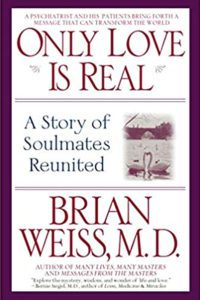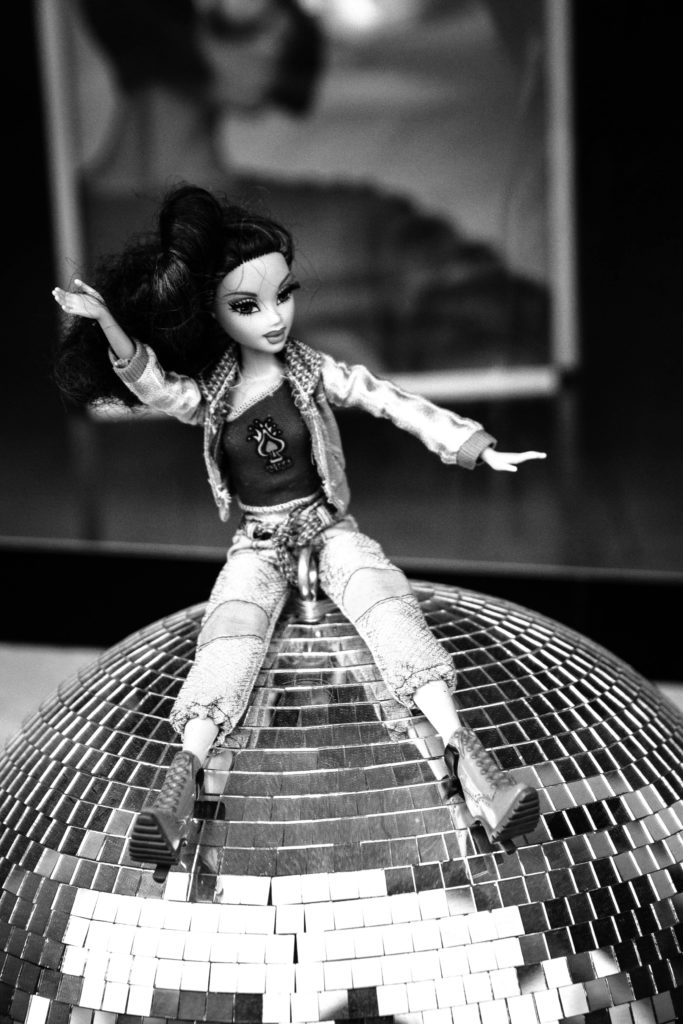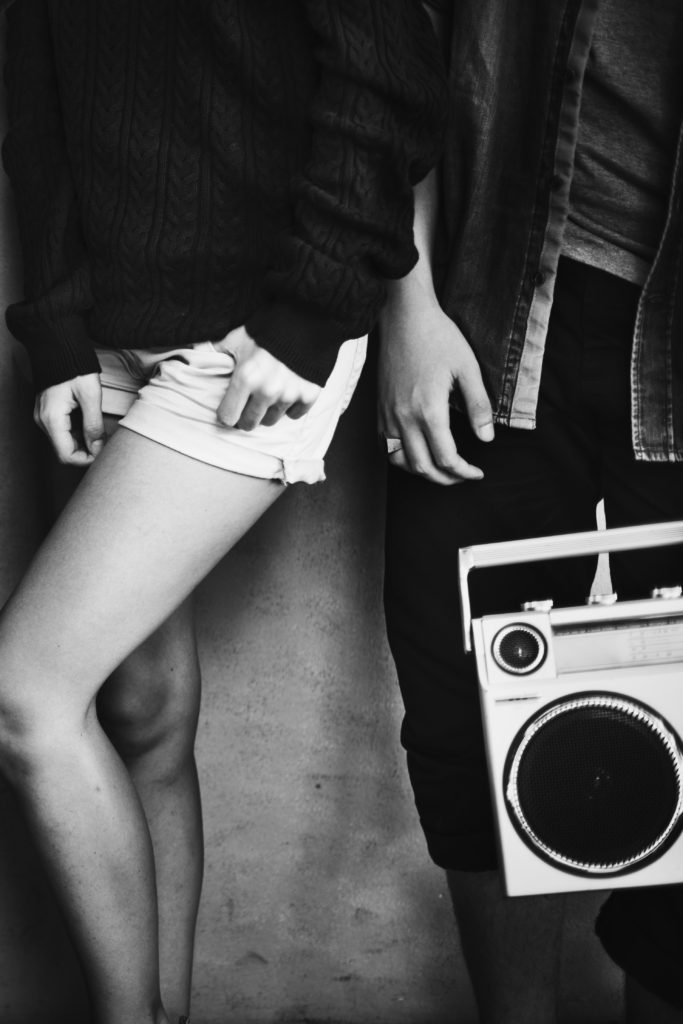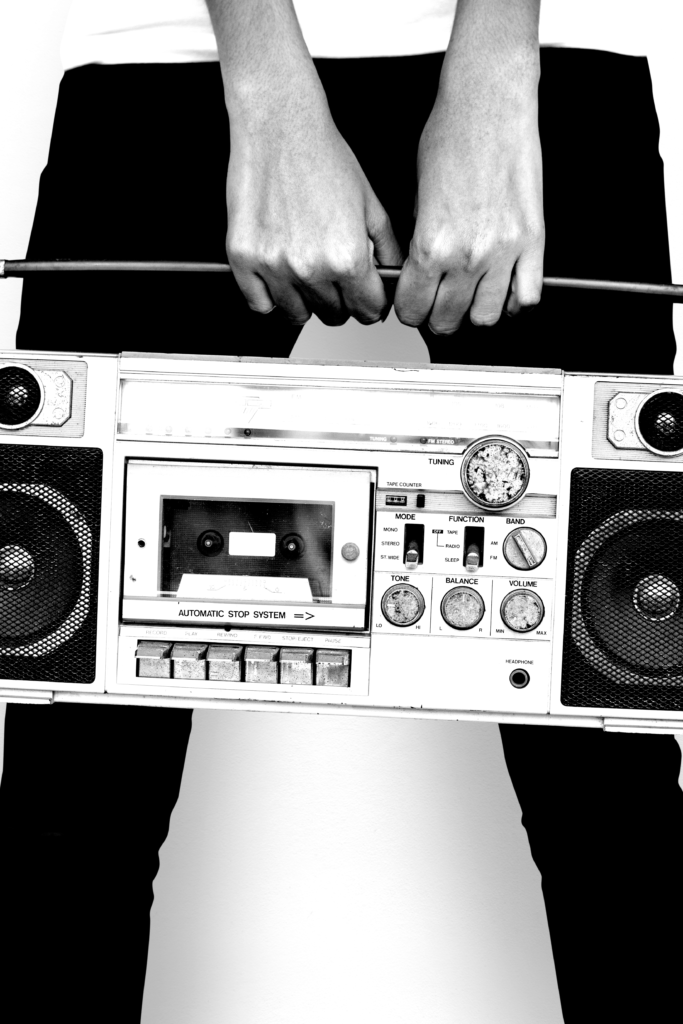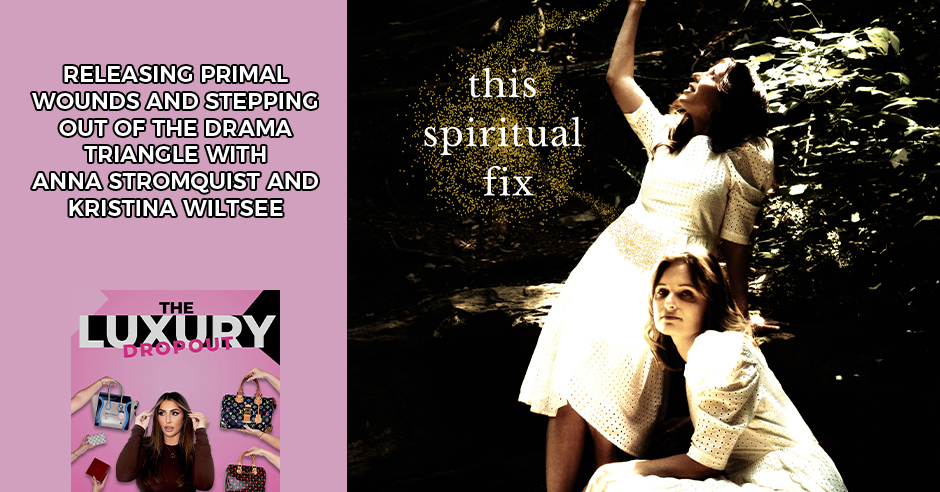
I stumbled across This Spiritual Fix on TikTok. Anna was chatting about the abandonment wound, and why those with that particular wound crave the “good morning” text from their partner. It struck a chord with me, because I could totally relate to a time when my ex had broken that routine and things started to fall apart. Little did I know, I had just scratched the surface. Anna and Kristina’s podcast has become my obsession. At a time in my life where I thought I was empowering myself and learning everything I needed to with the resources I already had, This Spiritual Fix has given me the missing puzzle piece. In this episode, we do a deep dive into the subject matter that I thought would resonate with all of you the most: the primal wounds, their Masks, “The Drama Triangle,” my car accident (and a huge “OMG” moment with clairvoyant Kristina), and working with a teacher, or Shaman. You will not want to miss this episode. It’s pure gold.
—
Watch the episode here:
Listen to the podcast here:
Releasing Primal Wounds And Stepping Out Of The Drama Triangle With Anna Stromquist And Kristina Wiltsee
What’s up Dropouts? This is a doozy. I have two strong, powerful women that are going to speak to us, Anna Stromquist and Kristina Wiltsee of This Spiritual Fix podcast. You guys need to go and subscribe to their podcast and I say this in the show as well. They have taught me so much. I was going along in my life thinking that I had learned all I need to learn about my spirituality, my love languages and healing myself. I got to This Spiritual Fix, which I found on TikTok and I was immediately engulfed in this absolute wealth of spiritual knowledge and self-healing that I truly never knew that I needed.
I don’t take this lightly when I say this, they changed my life. I want you to pay attention closely when we talk about the primal wounds because there’s a primal wound I didn’t even know that I had. I totally said it to them during this episode and they were like, “It’s this.” I’m like, “Obviously.” It’s a big duh moment. There are huge a-ha moments for me during this session. We talked about the drama triangle, which is something that Kristina herself came up with that spirit shared with her. You’re going to resonate with this. We need to get ourselves out of this drama triangle. What is the drama triangle? Stay tuned. We’re going to find out. We also talk about working with shamans and how Kristina and Anna both say that in the correct situation can eliminate the need for traditional psychotherapy. You’re going to want to stick around for all of that and more. We have a lot to talk about so let’s go ahead and jump right in.
—
Welcome, Anna and Kristina of This Spiritual Fix, to the show. How are you, guys?
Thanks for having us.
We’re great.
Have you recorded together so far?
We recorded last night an interview with someone.
It was a lot of fun. It was a woman that both Anna and I have worked with in the past. We don’t normally do interviews on our podcast often. It’s few and far between. We were talking about the divine feminine with her, which is something that we’re going to be touching on next season. It was juicy and sexy. I’m excited.
It was sexy and a little controversial.
I took a course on the divine feminine and I’ve been learning about the divine masculine and the wounded masculine. I’ve been doing a lot of work on that because I’ve been attracting the wounded masculine quite a bit so I had to do the work on that. I can’t wait for that episode. That’ll be cool.
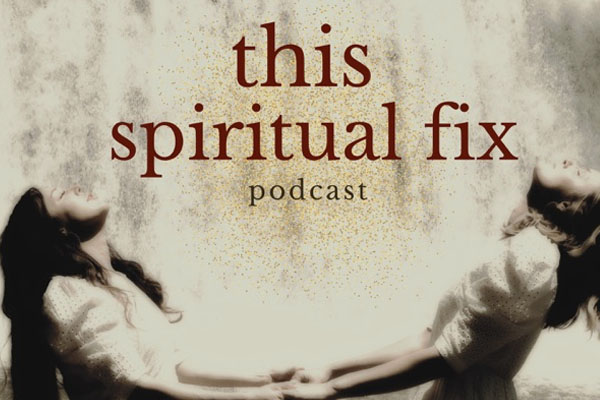
Releasing Primal Wounds: We’re all going to find things inside us that we might not be proud of or parts of us we don’t like. When you do, recognize there’s more of you to love and not parts of you to heal, purge, or scold.
It will be a cool thing because it’s bookmarked. Her husband leads the one on the divine masculine. In the following episode, it’s her. It’ll be a whole tantra series to discuss both.
I love that you guys aren’t afraid to delve into all the sectors of spirituality. It’s not just one form of spirituality. It’s amazing
We’re willing to try anything.
That’s where it started for us. We weren’t dogmatic about anything so that’s what made it interesting.
Every episode, I’m on the edge of my seat listening. For our readers, please, go immediately and subscribe to This Spiritual Fix on wherever you stream. You guys are good friends, close friends, you say best friends probably at this point in time. You share stories of childhood pain and unite in the same goal of healing that pain. Is that correct?
Yes. Beyond that is more realizing that there’s more of us to love because we joke, there’s nothing to fix and there’s nothing to heal. There’s just more of us to love. As we dive deeper into the whole self-discovery, we’re all going to find things inside us that we might not be proud of or parts of us we don’t like. Our biggest message is when you find these things, recognize there’s more of you to love and not parts of you to heal, purge or scold.
That’s what we mean when we say healing those layers of pain that come up because we want everyone to know that we all have this pain in us. We all have wounds. We’re all playing “toxic games”. We’re all on this Earth to learn lessons. As we uncover the things we have to learn, our journey is to love that in us and then, in turn, we come to love it and everyone else because if we can love all the ugly parts of us, it’s easier to love and accept everyone around us because everyone has ugly side parts.
Sometimes it works even the other way around. We find that in looking and forgiving another person’s stuff, we start to recognize that the thing that we have the biggest problem with somebody else is just us, reflected back at us. If we can forgive them then we can start to do the work on ourselves. There are lots of entry points whether it’s going into ourselves first or whether it’s looking at our relationships or looking at the things we have difficulty with in the world or keep attracting.
I’ve heard this before and I always say this to myself, “You don’t have to be completely healed to be loved all the way through.” I know you guys both say, “If you’re completely healed, you’re at the level of enlightenment,” which none of us are going to get there.
There's more of us to love because there's nothing to fix and there's nothing to heal. There's just more of us to love. Click To TweetMy major joke has always been, if I was married to Jesus Christ or Buddha who were the perfect men that have probably ever walked the planet, I’d be bitching at them. I would find something to bitch about because to me, that’s always been my yardstick to measure the perfect man. I would still find fault with Buddha and Jesus like, “Where is the fault here?” It’s through my own perception.
I won’t take credit for this. It was a meme. It was me to Jesus on the third day, “Where have you been? Why didn’t you call me? Why didn’t you tell me where you were? You could have at least texted.”
“Why are we speeding all these people? Why don’t you take me out on a date just alone?” You find something.
Women from their early 20s, Gen Z, all the way up to 40s, 50s and beyond have heard about the love languages. We all know what they are. Now, thankfully, we are more aware of the love languages. I have come to know what my love language is to where what I thought it was, which I thought was words of affirmation. Now I’ve come to find out it’s quality time because I was being loved bombed a lot. The words of affirmation were what were getting me going at first but now I realized it wasn’t.
We know all about that but what I want to talk about are the primal wounds. I know that you guys have done extensive episodes of this. Don’t worry, it won’t be too in-depth. I will direct the audience to go and read. I’ll go through the primal wounds. We’ve got abandonment, rejection, betrayal, injustice and humiliation. For those reading, the corresponding masks, the masks that we wear, abandonment is the codependent then we’ve got rejection, which is the fugitive. We’ve got betrayal, which is the controller. We’ve got injustice and that is the harsh critic and then humiliation is the masochist.
Me personally, I was looking at abandonment and betrayal. Those are things that I have experienced in my relationships. It’s a little bit different because I’m still out here on the streets in the dating scene and it’s rough out here. First one, abandonment. My abandonment and my codependency. For example, I’m with someone and every morning, they call me or they text me and then for two weeks, they stopped doing that. Maybe I might hear from them throughout the day but it’s not that consistent every morning good morning phone call or good morning text.
My mind starts going, “Are they leaving me? Are they abandoning me?” Becoming codependent as in texting them like, “Is everything okay? Did I do something wrong?” That kind of a thing, that’s how I was behaving before. I know this is relatable for a lot of women. How do we self-soothe in that kind of situation? What’s the type of work that we have to do? Does it depend on how deep-seated it is? Is it person by person? How do you go about attacking that?
It’s interesting, when I did my yoga teacher training a couple of years ago, I had a yoga teacher and she would talk about how when you come up to people, you’re usually relating to them on the level of a chakra. She was using that analogy. One of the things that we talked about in TSF is how these primal wounds are a lot like the shadow chakras. Whereas the heart and having an open heart is the light side of the shadow chakra and rejection is the dark side. Abandonment is in the second chakra. Those are the ways that we relate to it.

Releasing Primal Wounds: The whole world is a forgiveness machine of opportunity, medicine, and food. We can choose to see that as nourishing or we can choose to see it as hurtful.
What is interesting about that is that if you use that, if you recognize that your primal wound is like a magnet and it’s going to be attracting the opposite magnet that is going to pull this lesson. The whole world is a forgiveness machine, which is what we talked about. It’s all this opportunity, medicine and food for us. We can choose to see that as nourishing or we can choose to see it as hurtful. When you come to recognize that you’re attracting someone who is triggering the lesson of like, “I feel abandoned,” your magnet is specifically honed for that abandonment room.
When it comes to, “How do I attract the person who isn’t going to be the magnet that’s going to pull this out?” The work to preempt that is to create your own magnet. Complete your own circuit is what I mean. It’s to be like, “I don’t need somebody else to have to learn this lesson right now.” It sounds crazy but it works. Your mind can’t tell the difference between what happens in real life and what happens in your mind.
You create this work and you recognize that nobody can abandon you. You come down and you peel away all the different things that you’re feeling about abandonment. You’re getting angry and you experience all of that without even needing to have the other partner to play off of. By doing that, the magnet becomes less magnetized and you don’t have to attract the partner that’s going to bring out that lesson because you’re doing it anyway. You’re doing the work that the lesson would have to bring with you. It’s like, “Let’s do the pre-work.”
To close that circuit, if you’re paying attention to the universe, the universe is always here teaching us what we need to learn. I read a beautiful quote that said, “If you don’t take the day off that the universe is giving you, hence you need to rest and take a day off, it’s going to make you sick so you have no choice but to rest.” If you tell yourself, “I’ve got this abandonment wound. Let me notice it and everything,” you might start to notice that your abandonment wound is being triggered by a commercial or by your boss’s email. This was hilarious. I saw a TikTok about it, by the car behind you choosing to get in another lane. You’re like, “What did I do? Why have you left me?”
If you decide that you’re going to hone in and heal that abandonment wound and notice it everywhere, then you don’t need this teacher to come along because the people who trigger us are our dark teachers, not our light teachers. You’re less likely to need them to come to teach you a lesson because you’ve already let the universe know, “I’ve decided I’m going to take on this lesson.” One of my mantras is, I learn my lessons easily and effortlessly. It’s like, “Yes, I have things to learn but let me learn it easily and effortlessly. I don’t want to learn it in a hard way. Let me learn it quick so I can bypass a lot of the drama of it.”
That’s a great example of something that happened between Anna and I in the second season. We started doing all this work on the drama triangle and then we became the subject of each other’s drama triangle. I see that as such a gift as bad as it got and as much as I wanted to throw up every single one of my rejection room stuff. I wanted to throw every single wound in the world and I went through the whole gamut. For sure, Anna did, too.
I felt that we were in a safe space and we could do it without the consequence of needing bad validation, like, “There it is. She left me. We stopped doing the podcast.” We didn’t need that because we were both on the path of like, “We got to learn these lessons. This is absolute crap and it feels so bad.”

Men Are From Mars, Women Are from Venus: A Practical Guide for Improving Communication and Getting What You Want in Your Relationships
I can talk a little bit about navigating dating with an abandonment wound as someone who did that. I read a wonderful book by John Gray who wrote Men Are from Mars, Women Are from Venus. He has a book called Mars and Venus On a Date. In it, he talks about the five stages of dating, which are attraction, uncertainty, exclusivity, intimacy and engagement. Right after attraction comes uncertainty. Usually, in the attraction stage, there’s a lot of love bombing and fantasy. It’s an abandonment wound’s dream because that person is right there, completely involved, completely claiming you, owning you, calling you, texting you every day the whole day and it looks a lot like the intimacy stage. That intimacy stage doesn’t come until after uncertainty and exclusivity.
After attraction comes uncertainty and men will usually use that uncertainty to take a step back and evaluate the relationship and often even test you. They might not text you or do something screwed up. They might not even consciously be doing it. It’s an unconscious thing, just like children unconsciously test authority. They’re unconsciously testing you to see how are you under pressure, how are you under disappointment or how pathetic are you in some ways. It’s an unconscious thing. After the uncertainty stage comes exclusivity, where you decide you’re going to be exclusive then comes deeper intimacy. After that, you got engagement and marriage and “happily ever after”.
Understanding uncertainty was a huge eye-opener as someone with an abandonment wound because I used to perceive that when the man would start to take a step away from me after coming on so strongly. He now has abandoned me and he now no longer liked me. He was leaving me. I didn’t matter to him. I would react strongly but when I understood that that is a normal phase of healthy relationships to be uncertain and to ask questions like, “Is this person good for me? Do I even like this person?”
That’s what they’re doing but I wouldn’t be doing it. I’d be over here being like, “What do I need to do to get him to like me again? What do I need to do for him to love bomb me again?” I’d be more worried about what do I need to do to overperform to get his attention again instead of using that stage wisely to ask myself the questions of, “Is he a good fit for me?” For an abandonment wound, understanding that uncertainty is normal and healthy. When someone pulls away in the beginning right after that initial attraction, it doesn’t always spell out abandonment or rejection.
Introspectively, Anna, you hit the nail on the head. It’s like, “Is this making me happy? Why am I reacting with my gift-giving love language and showering him in gifts, experiences and things like that?” It’s like, “Let me treat you to dinner.” You should be focused on like, “Are you happy? Is he making you feel complete and not the opposite?”
With abandonment, when people pull away from us, our response is to try harder, work harder, blame ourselves and think, “What have I done wrong? What can I do?” You go through your Rolodex of personalities and be like, “What kind of woman do I need to be for this guy?” That’s codependency in a nutshell. It’s creating whatever you think they want instead of asking, “Are they good for me?”
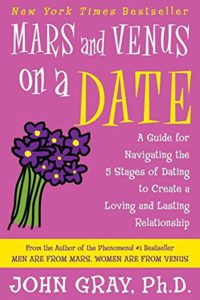
Mars and Venus On A Date: A Guide for Navigating the 5 Stages of Dating to Create a Loving and Lasting Relationship
I find that my abandonment wound gets triggered even online, on Instagram or whatever. Say, I get into a disagreement with a friend on Instagram or a text that comes in or a comment that is made on something I’ve written or a caption that I’ve written and they’re disagreeing with me. I feel like I automatically get into this, “I got to DM them and tell them all these things, that they’re so beautiful and wonderful. I’ve got to get out of this quickly.” The drama triangle situation comes into play. I’m sure your feedback is mostly positive. On TikTok, I know sometimes it can get a little sketch with people in their commentary. Do you ever find yourself triggered by anything that people comment or say?
Luckily, we’ve only had two negative comments out of thousands. I remember one triggered me. Kris, do you remember? It was the one about cultural appropriation. I was discussing the teachings of the Buddha and someone said that I was whitewashing and culturally appropriating the Buddha, which was in my mind, I could understand their point of view but I also was like, “I have put so much study into this.” The Buddha wanted to be loved and understood by the whole planet. He was not a cultural fighter. He wasn’t about the culture. He was about consciousness. I was biting my tongue to be not triggered. Right, Kristina?
The dynamic of what goes on online is a whole bunch of control dramas going all over the place. It’s a whole bunch of people inviting you into the drama triangle. People want engagement in whatever form of engagement it comes in. The drama triangle says there’s a persecutor and there’s a rescuer and then ultimately, those two types are trying to always become the victim. As the drama triangle, you get people in your comments that start becoming the persecutor and saying, “How could you do this? You didn’t do this right.” You want to fall into the victim.
Something goes on and some conflict happens and all of a sudden, you want to become the rescuer. You’re like, “I totally relate to what you’re saying. I’m going to start showering you with random other comments in order to make you feel better because I am terrified.” Automatically taken responsibility for this conflict and I am already trying to mitigate the fallout so that nothing happens even though it is such a betrayal of myself to do it.
There’s maybe a point when we don’t have opinions because we’re totally loving and accepting. Right now, we live in duality and experience in which we have opinions. Most of the time, those opinions are not going to be swayed by other people. That’s a controversial thing to say. Ultimately, it’s our own learning and our own reflection in the world that helps us to move positions, which is why we’re in a climate that we’re in. Everyone thinks they can change everybody else’s opinions about something.
The idea is that whatever your truth is right now, we all need to recognize that our truth is the only truth but it’s also not really the truth at all because it’s our truth. It’s nobody else’s truth but that’s where we are right now. We honor that and we accept where we are. We accept that if this hurts our feelings that we need to keep our integrity and not give away all that power because we’re terrified that someone’s going to leave us.
It happens with friends too even over text, where we’ll get into a disagreement and I’ll eventually go into that rescuer mode, where I’m like, “You look so beautiful on your Instagram post.” I’m trying to get the problem away.
“Don’t leave me.”
If we can love all the ugly parts of us, it's easier to love and accept everyone around us because everyone has ugly side parts. Click To TweetI do have that wound. I won’t say I won’t. In dating, I want to put it out there that I have set strong boundaries with regards to how I allow a man to court me because it should be a courtship. I’m a little “old fashioned” in that way, whereas I don’t accept the same-day date. I don’t want you to ask me to hang out. I want you to ask me on a date. I want a place and time and things like that. If they don’t text or call the day after or the day after that, I expect to know a reason why.
I’m not saying you have to tell me every single bit of your life but it’s to be expected if you disappear for two days to say, “I know we haven’t touched base in a couple of days. Work’s been crazy. Do you want to get together on Saturday?” Something like that. If they don’t do that then I automatically give them the ax. At first, I was like, “Maybe that’s my abandonment wound,” but then I said to myself, “Maybe that’s because I’ve set good boundaries in dating.” What do you think?
We have a whole episode on this called Super Sweet Soulmate Love: Exploring Deal-Makers and Deal-Breakers. With my husband, I was also big on courtship. My husband is from Georgia and he’s the gentleman who always pays and always opens the door. He’s such a Georgian gentleman. He’s a Georgia Peach but he’s a man. I don’t know what the equivalent is. He’s like that. What he’s going to say, I had it in my mind. I made a vision board. Not even a vision board is necessary but I knew in my mind, “The man I want to marry has got to have these five qualities. Beyond that, I’m going to radically forgive everything else.”
If it’s not important enough to put on my list then it’s not important for me to go nitpick. It’s up to you then what is on your list. If you have a thing like, “He has to text me back 40 hours after our date.” If you want to put that on your deal-breaker list, that’s fine. You can put anything on there. The world is vast. You could say, “Only wears purple shirts.” You can put whatever you want on that list.
For the sake of understanding that humans are multi-layered and multifaceted, I would choose the things and then stick to them and then give a lot of wiggle room for other things. For example, I put on my list these qualities and then I meet my husband. He was a lot older than me than I had expected my future husband to be and he had been married before but never on my list had I put that he needs to be within five years of my age or he needs to be never married. I didn’t put that on my list so when I met him, he was older and he had been married before. I thought, “It wasn’t on my list so I’m going to let that go and be curious and be open-minded.” I’m so glad I did. He had the qualities I needed him to have and then everything else, I chose to be flexible about.
Your vision board also had an engagement ring, I understand.
I should find my vision board one day.
It’s gorgeous.
He got me the exact ring from my vision board without knowing it. I had forgotten and I showed it to another friend when I got engaged. I go, “Look.” She goes, “Anna, get out your vision board from a few years ago.” I pulled it up and we were both freaking out. It was the same ring. She’s like, “Did he have your password to your computer?” I’m like, “He’s not a snooper and no, he didn’t have my password.” My stepdaughter helped pick it out so it wasn’t even him. It was crazy.
If you're paying attention to the universe, the universe is always here teaching us what we need to learn. Click To TweetWhat you said about manifestation is true in the sense that by creating those boundaries, you are effectively saying, “This is what I want right now.” The universe is probably going to keep testing you and be like, “Here’s 80% of what you want. Is that okay? Here’s 95% of what you want. Is that okay?” You need to be like, “No, I’m waiting for 100%. I’m good. I’m patient to be able to do it.” Putting another layer on to it. Let me know if this is too premature. Betrayal’s mask is controlling. For some people, it can get confusing in this area because you’re like, “You’re trying to control things too much. You’re creating too narrow of a field. You need to be open to whatever is coming into the world.” You could say all sorts of things.
The real test of this is that betrayal people like to avoid pain so they try and limit the possibility of pain in their life. All the wounds are using masks to avoid pain or have pain come in a controlled fashion. When it comes to the betrayal wound and whether or not you know that that’s playing a part in what you’re doing to say, “Are my boundaries being too controlling?” What is a good test is to say, “Am I saying that this person needs to do this and this because ultimately, I don’t trust them?”
This is the psychic woo coming in and I’m going to be super clear that this is what’s coming in right now. It’s that if your boundaries start to change to be more controlling or if they become reactionary. If it becomes reactionary, you’ll be like, “Now I have to create another boundary because you’re breaking my other deal-breaker. I’m not in a place where I’m going to end it because you broke this deal so I’m going to create this other deal-breaker.” That is the clear sign that you know that the betrayal wound is coming in to control things because it’s trying to avoid the pain but it’s also wanting to avoid ending things and breaking up with things.
When you have betrayal and abandonment working side by side, they’re diametrically opposed. One is wanting to control everything and push it away and the other is always like, “No, never leave me.” It’s a push-pull. Knowing that your deal breakers keep changing because you’re afraid to have that moment and say, “This is a deal-breaker. My deal-breaker happened a long time ago but I was afraid or I had lost faith that I was going to find my 100%.” It’s a way to recognize that with betrayal wound.
I’m glad that you said that there’s the push-pull because sometimes I mix up the two in my head, whereas it’s almost like I’m trying not to get abandoned so I control the situation. That’s fused in a weird way.
Codependents were controlling but we’re manipulative about it. It’s under the surface. It’s not direct.
If you want to bring the drama triangle, the betrayer is the persecutor more and the abandonment is the rescuer. The rescuer is tricky about the way that they’re trying to become the victim whereas the betrayer person’s like, “I’m going to be the persecutor about it.”
When my love and my gift-giving were not reciprocated, I’m the victim. I want to get into the drama triangle. In the episode about Eric and the texting, Anna kept referring to that wound as she, as an entity. That’s what I do for my anxiety and self-sabotage. I have given them names and I have humanized them. I want to put that out there because I gave my friend this advice. We named her self-sabotage and ever since then, she texts me and she’s like, “Stephanie, Maria’s acting up again.” I’m like, “What did she do now?” We talk about it like that and it gives it this element of humor so we take the power away from it a little bit. I hope that’s helpful to someone reading.

Releasing Primal Wounds: Betrayal and abandonment are diametrically opposed. One is wanting to control everything and push it away, and the other is always, “No, never leave me.”
I call my PMDD, which is severe PMS, my dragon. I turn into a dragon like Medusa. It’s helpful because she’s another side of me. The thing about boundaries is worthwhile especially if you’re codependent because codependents are the doormats of the universe because we’re willing to tolerate almost any behavior if that person doesn’t leave us. I know that one of the great ways that I use a yardstick for boundaries is I have to ask myself things like, “Would he treat his boss like that? This guy I’m dating, if his boss took him out to dinner, would he probably send his boss a thank you text a day later? If he had a meeting with his boss and he couldn’t show up, would he send a courtesy text to reschedule?”
I would get so wrapped up in, “Maybe he’s awesome and I’m being abandonment woundy here.” If I can be like, “What would he treat his boss like that? Would he treat his colleague like that?” I can make it a little more objective and then I can more easily discern behavior as respectful or disrespectful because sometimes we get caught up in our wound and it clouds our vision. If you’re also self-deprecating then you start to wonder, “Am I just being needy or was he doing this respectful behavior?” Sometimes I do that. I say, “How would he treat a colleague?”
That’s a great analogy. Being a polite human being is normal to me than not cancel at the start time of the date. That is under no surprise.
You can ask yourself, “If he did that to his boss five times in a row, would he get fired?” The behavior that goes on in dating is not that much different than office etiquette if you think about it. That’s one way to yardstick it.
For those of you who are familiar with the drama triangle, you have to go to This Spiritual Fix and listen to all the episodes on the drama triangle because it is essential for your life. It has taught me so much about my cyclical need for drama and I didn’t even think I was creating drama. “I am enlightened. I am healed. I’m better now. Look at me.” When I listened to your episodes, I was like, “I am not enlightened or fixed right now. I need more fixing.”
The drama triangle has three facets. You have the victim, persecutor and rescuer. Those are the elements of the drama triangle. I’m sure you can infer from what we’ve been talking about. Let’s take an example. You get a message online or comment online from a person that says you are culturally appropriating and it triggers you. You’re like, “That is not how I feel at all.” Internally, you’re having this anxiety so you either go 1 of 2 ways. You go to the persecutor, which is you go on the attack and you go attack that person or you go to the rescuer, which is you try to fix the situation.
“Let me educate you on how I’m not appropriating.”
Because you have let this comment affect you, you’re automatically taking this victim mentality. Am I right?
Ultimately, you feel victimized so then your next response is persecutor, rescuer or maybe victim. “Poor me. How could they possibly think that I culture appropriate when I just love Buddha,” or whatever it is.
Normally, you guys don’t eat anywhere except in the kitchen. That’s a general rule in your house. Your husband had gone into the guestroom and eaten some Doritos because he was not trying to wake you up. He’s watching TV and he’s left some Dorito crumbs by the bedside. This triggered you and you’re like, “WTF. Are you joking me?”
Codependents are the doormats of the universe because they're willing to tolerate almost any behavior if that person doesn't leave. Click To TweetWe had guests coming that day so I go into the bedroom to double-check how clean it was, make sure no puppy had pooped in the bedroom or whatever. I come into the room and I see the Dorito chips. I saw Red and my first thought was, “Holy shit,” and then I go into the victim, “Poor me. I’m always cleaning the house and no one recognizes how much hard work I do. I’m such an amazing housekeeper but no one cares.” I went into persecutor, which is like, “That pig. How can we leave chips on this thing?” Rescuer was like, “I’ll take care of it.”
I stopped myself in my tracks and I was like, “Anna, you’re playing drama triangle here and there was no cheese at the end of the tunnel.” It was even my birthday that day and I was like, “Do you want to be in the drama triangle for your birthday?” I’m like, “I’m not. I’m going to be mature,” because the drama triangle is all about immaturity. It’s all about being afraid to directly ask for your needs to be met. We go around it by either pointing a finger and playing persecutor or saying, “Poor me,” being the victim or trying to play rescuer so then we can say, “I tried to rescue you. Didn’t you see what an awesome job I did?” I was like, “I’m not going to do any of those three options. I’m going to be mature.”
I calmly told him, “In the future, will you please not eat Dorito chips in the guest room especially before a friend comes?” He was like, “Yeah.” All the color drained from his face. He’s like, “I’m so sorry. It will never happen again,” and then it was over. We went on with our day. It was a one-minute thing instead of a 30-minute thing. For anyone who’s been married, it could have turned into a five-hour resentment. The reality is when you live with someone and they pissed you off, you can hold on to that for as long as you want. It became a one-minute thing because I was able to catch it before the drama triangle serotonin addiction thing set off.
Kristina, spirit gave you this information. Is that correct?
Yeah. It was an interesting thing because our mutual teacher, Robbie, who’s a shaman who we interviewed, mentioned the drama triangle to me. I misunderstood it when she first told me. She was like, “In one lifetime, you’re the abuser. The next one, you’re the abusee and then you may be the rescuer. You’re always going to flip flop in these roles throughout your whole life.” I would do work to try and release my ancestral abusers, who I knew were in my family line and my ancestral abusees.
I was doing it on a meta, not day-to-day level. It was a conflict between Anna and I, where I got upset about something. I noticed how I was roiling in this experience of being upset but not saying anything because I didn’t want to make her upset. I was flip-flopping through all these roles. It was the spirit who came in and was like, “Look at what you’re doing. One second, you’re the persecutor, you’re the abuser. The next second, you are saying stuff to Anna, like, ‘It’s so great. It’s all fine. Don’t worry about it.’ You’re trying to do this and then the whole time, you’re sitting here bitching to your husband about how much of a bitch she is and you’re playing the victim. You’re persecuting yourself and then playing the victim and then playing all three.” At the exact same time, I was playing all of them.
We were flip-flopping between the three of them as our drama unfolded but it was awesome. I told Kris later there was no one else in this world I’d rather have been in the drama triangle with than her because we were both willing to see it, stop it and get out of it. We pushed each other. We flip-flopped.
This was a lot for me. This is why I talk about betrayal because betrayal and rejection are my two gems. Those are my wounds. Both of those like to avoid feeling anything that’s painful. The rejection wound will retreat completely away from it and become small and disappear. The betrayal wound will try and control everything to prevent it from happening. It’s those two different sides of it.
If you think about it, the behavior that goes on in dating is not that much different than office etiquette. Click To TweetI was so upset about this experience. I felt it in my body and I wanted to get rid of it. It was like this ball of pain in my body and I was like, “I got to do something about this.” That’s what the drama triangle wants us to do. It wants us to pass on that feeling, that hot potato of nasty drama to somebody else so that you don’t have to feel it. The thing is that it doesn’t work like that because the minute you pass it on to somebody else, you’re making their ball glow hotter and your ball is still glowing hotter. There’s nothing you know and eventually, there’ll be a reckoning. Even if it seems like you’ve temporarily passed it off, you’re not.
That day, I went on a walk with this super uncomfortable feeling sitting right in my solar plexus. I was like, “I’m going to be okay with this super uncomfortable drama triangle sitting in my body.” It was the first time I had been like, “It’s okay to feel uncomfortable. It’s okay to be wrong and it’s okay to be right and you don’t have to make somebody pay for it.” There’s no cheese at the end of this tunnel. There’s no exchange of energy with this dynamic that makes anything feel better.
You’re never going to get what you want with it.
In a triangle forever.
The biggest takeaway for me with doing this work was I recognized the way that I use rescuing to get things that I wanted. Instead of asking directly for my needs to be met, I would rescue people. I would do more of my fair share of group projects so that way, when I wanted to take a break, I felt justified to take one. Even around the house with me and my husband, whatever the chore distribution was, I would go 120% over mine because that way, I knew that if I ever wanted a break, I could ask for it instead of asking for it and not having to earn it.
What I came to recognize with this work was, one, there’s no cheese at the end of the tunnel. It’s never going to give you what you want. Number two, if you’re tired of playing victim, if you’re tired of the victim consciousness, playing the victim card, feeling like a victim in your relationship or you’re tired of being the persecutor, fault-finding in others, you can’t give up one leg of the drama triangle and expect the other two to be okay. You have to give up the whole drama triangle.
I was in a situation where I was constantly playing the victim with someone and I realized that if I wanted to stop, I had to stop rescuing them, too. If I don’t want to be a victim to them, I had to stop rescuing them, too. I had to give the whole thing up. I couldn’t just give up the parts I didn’t like. That’s hard because one leg of the drama triangle, if not multiple, is feeding you somehow whether it’s a serotonin hit, a dopamine hit, a sense of worthiness, a sense of, “I’m so amazing. I’m rescuing this person.” You’re getting some feedback from one of the points of the triangle. You got to be willing to give up the addiction to all of it or you’re going to always be trapped in it. Right, Kristina?
We go through even the twelve steps from AA because that was how I approached it. I was like, “I am such an addict. I don’t even know how to be emotionally mature. The only way I know how to operate when it comes to any conflict is in this way. I have to figure out how to grow up.” Trauma and all these other experiences arrested my envelopment from when I was younger and it was like, “Adulthood exists to get over our childhood.” Sometimes I think that. We’re here to undo whether it’s past lives or childhoods. It was particularly because of my kids but because of every interaction, my work was to grow up emotionally and find a new way to interact.
I want to read a quote from you, Kristina, that resonated with me so much that I wrote it down. You said, “It is important to focus on healing the wound so the anxiety ceases, codependency, the overperforming ceases and the maladaptive behaviors. The toxic behaviors start to fall off because they do not serve us.” I thought that was introspective.
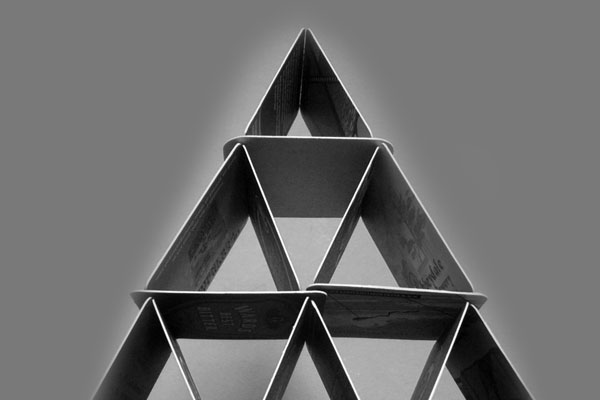
Releasing Primal Wounds: The drama triangle is all about immaturity. It’s all about being afraid to directly ask for your needs to be met.
We have so much old stuff that we’re used to doing because it’s our habit. The more work you do, the faster it falls off because it’s like, “We’re done. We don’t need this lesson.” You start to sprint through your lessons. Sometimes you get slowed down by bigger ones but the work is there and you’re doing it.
You said to me, “Our potential partners trigger our wounds the most because they’re the closest thing to us in terms of an extension of ourselves more so than even our children.”
Our partners whether male, female, trans, non-binary or whoever our romantic partner is, are inverse. Let’s say I’m 60% feminine and 40% masculine. Most likely, my husband is the flip. He’s 60% masculine and 40% feminine. He is my mere half. Especially when you live with someone or when you love someone and you are in a relationship or you are married, your identity is wrapped up in that person. They’re the person who is our biggest trigger. They are our biggest tuning forks because they are ourselves.
Especially if you’re like me, one of the things codependents do is self-abandon. When people self-abandon, we don’t look at our own shit. We try to save the world around us. Especially for someone who has abandonment issues, I wouldn’t look inside as much. I would look to what my husband was doing wrong. If I was upset, I’d be like, “I’m upset today. What the hell did he do wrong today? Let me figure this out.” I was like a little Sherlock Holmes with my magnifying glass. “What did he do? Why am I in a bad mood?” Instead of looking inside. For me and it’s true for a lot of people, our partner is the biggest extension of who we are. The more we can love and forgive them, that’s a closer reflection to our own self-love and then it goes to children, maybe siblings and parents. It expands from there.
It’s whatever your inner circle is, honestly. They say, “Surround yourself with the five people that you want to become.” Make sure that the people around you are expanders for your life, not contractors. They’re pushing the possibilities of what you can do in your own life. I joke with Anna that my husband is my representation of my mind. My daughter’s my representation of my inner child. Before I had any of those relationships, the closest people that I had were also reflecting it, like work relationships and things like that. They were representing my own archetypes in my life.
It’s true that when you do have a partner, that does give you that amazing lesson to see your stuff so clearly. One of the massive realizations I had years ago was with a colleague. I had kept having these issues with this colleague and I was like, “I don’t like this about her,” and then I was like, “I don’t like all that stuff about myself.” She was giving it to me. She was showing me.
When you get in that intimate thing with partners and things, with all relationships, you’re able to see that dynamic and you’re also able to see the wound dynamic. Everyone that in your inner circle, whatever’s in that roundhouse circle for you, you can read them like a book if you want to. You’d be like, “These are all the lessons you have to learn.”
Have you guys heard the story about the Bengali tea boy? This is a great analogy. There was this famed monk. Bengal is part of India. The tea ceremony says, “Be graceful, beautiful, calm and lovely.” There was this tea boy that was terrible at it. He clangs the dishes and breaks everything. He was clumsy and annoying. He talks and he was a pain in the ass. This monk was invited to go to Tibet and he heard that everyone in Tibet was so enlightened and peaceful that nothing was going to bother him when he went. He says, “I’ll take the tea boy with me.”
You can't give up one leg of the drama triangle and expect the other two to be okay. You have to give up the whole drama triangle. Click To TweetFirst of all, he needed to grow with that anger so he needed someone that irritated to come along. Number two, maybe it was preventing God knows what to happen in Tibet because if he didn’t have that outlet, he would get it somewhere else. The joke was people in Tibet were just as much assholes as anywhere else that he didn’t need to bring the tea boy. The point was, it’s like our partner. Whether you’re married or unmarried, single, divorced, a hermit or a monk working in a high-profile job, we all have our tea boys.
My tea boy sometimes is me.
Ultimately, our tea boy is us.
That’s the thing, we live in the drama. Our realization is that we wouldn’t even be in a body if we didn’t have an inception in becoming incarnate. We are born into a drama triangle of sorts. The world is created from this machine of having to work out your stuff, which means interacting with whatever’s around you. You can go up into a cave in the middle of the Himalayas and it’s going to be within yourself. Your own playground is forgiveness and all your lessons exist within your body or you can play the householder’s life. You can be on social media and get all your lessons. You can choose wherever it is to do that.
There are guys living in the basement of their mom’s house with no social interaction, trolling, playing persecutor all day. You can get it wherever you want it.
You can get it in Target.
As my friend said, “The world is a big golden corral. You can eat a buffet. What are you going to put on your plate?” It’s all there.
That’s the thing. I’m going through a period where I feel like I’m getting lesson after lesson and I’m like, “I need this to let up a little bit.” It’s a lot, but at the same time, I also recognize that I could totally slow down if I wanted to. I know that I could stop stimulating myself with all these other things and I could be like, “I’m going to relax. I’m going to be in my divine feminine spa life. I’m going to go do this and then I could go back into the fray. I could go back into doing my work.” There’s a saying that I love, which is, “If you haven’t started, best not to start but once you start, best to finish.” Once you get into a lesson, try and see it all the way through. It’s best to finish once you start.
The lessons are a blessing because here I was before I found you and I was like, “I’m doing the work. I’m doing a lot better,” and then I found the drama triangle and then I listened to your episode with Robbie. It’s an infinite number of lessons. Am I willing to take them all in? Am I willing to comprehend them at the time they’re given to me at that moment? Maybe not. Maybe it’s going to take me a couple of weeks. Maybe it’s going to take me a year but I want to get there. The intention is what is important.
I said in one of the episodes, “Meditation is the work you do on the mat. Coming out of the drama triangle is the work you do off the mat.” It’s that automatic reaction, wanting to push or pull and not just sitting there with the uncomfortableness of things. It’s the same thing, ones out here and ones inside. The drama triangle was a big piece missing from my meditation practice because it’s so easy to be equanimous on a mat.
It’s easy to put your fingers together and pretend like you’re Zen and all of that. It’s quite another to be Zen up here in your mind. I was a believer in time heals all wounds. Time helps to heal wounds but it’s up to me to make sure I am actively healing. I was in a bad car accident. That was completely the driver’s fault. I was deep in that drama triangle because I was the victim hardcore and persecutor. No rescuer was there.
The world is a big golden corral. You can eat a buffet, but what are you going to put on your plate? Click To TweetI was angry every day because my back still to this day hurts badly. I already had a bad back and now I have an even worse back. It’s hindering me from doing what I love from working out. Even travel is difficult for me, lifting anything that’s above five pounds and bending over to pick up something off the ground. Here I am, every time I try to bend over and pick up something, I get angry. I had to do so much work to get myself out of the manifesting of that anger directed at that guy. Having to say to myself, “Where’s the cheese at the end of the tunnel? Getting angry at this dude is going to do what for me? Nothing. It makes me more angry.”
One of the things that Anna and I have discovered, we’ve done two rounds of primal wounds. We did it before we started a podcast and then we did it while we did the podcast and then we went into the drama triangle. One of the things that I found and Anna, you can tell me if you resonate with this, too, is that whenever I find myself going into the drama triangle, it’s like a wound popping up its head being like, “Let’s do a little bit more work on us.”
For you, you experienced injustice. This is massive injustice wound. In Anna’s analogy, the wound is like the piano and the drama triangle is the keys. How it plays itself out is how it plays it out in your life. You experienced so much injustice in it and then you’re going to experience the drama triangle. When you defuse the drama triangle then you can use other tools to get into that injustice wound because the injustice wound is still there. You’re still reminded every day of it. You’re just going to use a better tool to get into it. The drama triangle lets it fester.
It’s like pinball.
Now you’re like, “The drama triangle has let me know I have an injustice wound. Now let’s deal with this using all of our other tools.”
I’m so glad that you said that, Kristina, because I didn’t even realize I had an injustice wound but now I’m having a light ball on the top of my head that says duh on it. That’s so obvious now that you say it.
Also, injustice is in the back. People with injustice wounds often have rigid, stiff backs.
Another ding up here. That’s fascinating. My mind is completely blown.
If you see someone with a stiff, erect spine, you can guarantee that 9 times out of 10, their primary wound is injustice. It becomes so rigid in their beliefs. My friend who turned me on to the primal wound is injustice but she has the best posture though.
I had a bigger chair but it blocked the background so I sit on a stool now and I’m constantly trying to keep my back straight and then my legs are still supposed to be in figure four because that stretches out my hip and keeps my back pain-free. I’m constantly adjusting my legs. There’s all this stuff going on here behind the scenes always at every show I do. It’s a reminder every day of this stupid back thing that I have to go through every day. Whereas before, I would be so angry. I would cry every day and be like, “Fuck this guy. I hate this guy.” I never wish death upon anyone but I wish he would get manure truck dumped on his head or something silly.

Releasing Primal Wounds: We have so much old stuff that we’re used to doing because it’s our habit. The more work you do, the faster it falls off because you’re done.
Justice loves revenge.
It’s like a monster. I want to say I’ve forgiven him but I don’t think I have truly forgiven him. I’m still working on that but I have forgiven myself for allowing me to put myself in this situation where it happened. I’m there but I haven’t forgiven him. Does that make sense?
Yeah. There are pieces. It’s like an onion. You’ll forgive the circumstance and you’ll forgive the back pain. You open it up and there’s so much to forgive. We go in that forgiveness factory.
People know this, who follow the show. I did almost die that day and my seatbelt saved me. We flipped the car 3 or 4 times and I was hanging upside down with my hair above my head. It was bad. That’s why I’m so angry about it because it wasn’t just a car accident. The car was destroyed. When we flipped, the full impact was on my side, the passenger side. I had safety glass everywhere in my eyelashes and my mouth. I’m thanking the heavens I am alive.
To give you the little thing that they’re telling me out there, it’s interesting because of the work that you’ve been doing, from what I can see, the accident was supposed to be much worse. Think of it like karma if you want to say it like that. There’s all this action-reaction. Karma means action. Something happened before and then it has to have an equal and opposite reaction coming on the other side. A lot of the time, the fields of the wounds, in particular, pull energy from your karma. They perpetuate karma. You can have injustice karma and betrayal karma and all this kind of stuff.
What I get is that sometimes with these wounds, if they sit in the back or if they’re ready to be released or something along those lines, what will happen is there will be this massive explosion of energy in the world. Sometimes it feels catastrophic. It feels like a massive accident or something like that. The work that you were doing, you were relieving the pressure valve before the accident so that the accident was bad but it wasn’t as bad as it could have been.
That’s what we were talking about in terms of this whole experience. Your lesson is going to come to you. Do you want to just do the work? It’s like, “Relieve the pressure valve on your injustice wound and rejection wound. Love yourself and all those different ways and all those different areas. Forgive those parts of yourself. Forgive the people who have triggered them in you.” Suddenly, those massive releases of energy don’t have to be so catastrophic. You don’t have to lose your body.
That makes me tingle all over. My mom is constantly saying to me that this accident was the catalyst and the gateway to everything coming together for the show. It was on the road to getting there but I agree with her that the accident was the turning point in a way for me, too. I had been doing work before then. I was almost like a beeline to the finish line of getting it up and running. Thank you for that affirmation and the confirmation. I appreciate that so much. Thank you, Kristina.
Meditation is the work you do on the mat. Coming out of the drama triangle is the work you do off the mat. Click To TweetI want to touch on your episode with Robbie. This is something I know little about and I want to learn more. I want to get hooked up with Robbie. I need to work with her as well. She seems like a badass lady. I’ve done Reiki before so that’s the closest work that I’ve done to working with a shaman. There’s one important question that I do want to ask you. One of you guys said that psychotherapy isn’t enough versus working with a shaman. Do you guys believe that working with a shaman can eliminate the need for traditional psychotherapy?
Yes but it has to be from someone who’s living on all the different planes. What I mean by that is you have your emotional body, physical body, energy body and mental body. When you go to a psychotherapist, they’re only targeting the mental body and sometimes the emotional body. It’s a big mind game to me. I’m sure there’s a whole variety of good and bad shamans out there but the good ones are going to target your issue on all four levels.
I’ve completely given up on psychotherapy altogether because I had been going to psychotherapy for a year to work on a dysfunctional relationship with a family member and nothing changed. I went to Robbie and in the first session, she changed everything. Me and that family member are now best friends, which is what I always wanted. I never thought that was possible. It’s because she targeted on all levels.
It was funny because I had a friend who’s going through a health problem. I was like, “You should see my shaman about that.” She’s like, “Why?” I was thinking, “Never mind. It’s not for everybody.” For the people who resonate and live on all four planes, energy, physical, mental, emotional, it’s the best recipe and it’s the quickest recipe for healing because it goes everywhere.
I know people that spend years in therapy and I’m like, “You’re exactly the same person five years later. Whereas the people I know who meditate or visit shamans and who are putting themselves in the alpha state through hypnosis, meditation or whatever, one month to the next, they’re different.” Kristina is a totally different person than she was last month. The person down the street who’s been going to therapy for twenty years is exactly the same person they were when I met them six years ago.
One of the things we talked about in that episode is the three different types of work. There’s light work, shadow work and dark work. Light work is expensive. It’s like, “Let me see all these different possibilities.” Expand love and your heart out. Shadow work is looking at your past and saying, “What is it that I can transmute?” I think of it as that energy that is sitting. Shadow work is energy that is there to be released and it can be freely used within your aura. It doesn’t have to be attached to trauma, wound and all these things.
There’s dark work, which is entity attachments. You’re getting into this deeper level of experience. I talk about all the time that there’s some stuff that you can’t explain but somebody will do something and it is like night and day. All of a sudden, you come out and you’re like, “I feel like a different person. I was going crazy. My anxiety was out of control. I was going through panic attacks.” Yana releases an implant on me and then I’m like, “I’m fine.” You can get into the dynamics of why those things exist or why they attract you or all that kind of stuff. You can say, “Maybe it’s good to cover all my bases here,” to get somebody who can deal in that realm.

Releasing Primal Wounds: When you’re married or live with someone you are in a relationship with, your identity is wrapped up in that person and they become our biggest trigger.
When you think of shadow work or dark work, I feel like they’re automatically going to think of voodoo or hoodoo or the Shadow Man from the Princess and the Frog or something. It’s not like that.
Shadow work is the drama triangle work. It’s looking at your shit. It’s looking at your skeletons in your closet. It’s what shadow work is.
It’s fascinating to me. This Reiki master that I did two Zoom sessions with, the first one was three hours long. They’re supposed to be an hour. This poor woman was dripping sweat at the end of our session. She’s like, “I’m so sorry.” She was apologizing because she was dripping sweat all over. She’s probably 55 or close to 60. She’s like, “I’ve been doing this for 30 years and I’ve never drip so much sweat. I’m so sorry. I apologize.” She was in this apologetic stage. I was like, “It’s okay. Do what you need to do. Cool down. Go lay on your bed for a second.”
When she was scanning my chakras, she would find implants and those types of things and ask whichever archangel she was speaking to at the time or asking for assistance to release them, make them go away and phoenix fire them away. We talked about past life regression and she was telling me that in one of my lives, I was this enchantress with big curly red hair and I wore this beautiful ruby medallion. I was the dexter of enchantresses, whereas I would hurt people but only people that needed to be hurt. I thought that was freaking cool.
Injustice wound. Even the scales.
The imagery that she came up with was so accurate. Some of the things she touched on, she’s like, “Did you almost drown once?” I’m like, “How would you know that?” We were in Italy and I was probably 12 or 13. We were at a waterpark. No one knows this. No one had social media. I never recorded it anywhere. The only people that know are my mom, my sister and my cousins from Italy. We were in the wave pool and I couldn’t get out. I couldn’t swim fast enough because the waves were coming at me. Right when I was about to give up, someone came and pulled me out of the water. That’s what got me believing.
I grew up in a strict Roman Catholic type of situation so I have an altar where I have my mixed bag. It’s got my rosary, prayer cards, crystals, a dagger, coins, incense and sage. It’s a mixed bag of everything. Some people say it’s sacrilegious. I’m like, “To me, this is what helps me and this is how I speak to my higher power. However you speak to your higher power, I accept and you should be accepting of how I speak to my higher power. It’s nothing to do with Satanism or something evil. This is about educating yourself that there’s not just one way to speak to your higher power.” Can you guys touch on what is a shaman? What can they do for you? Can you explain past life regression? Because I can’t explain it.
A shaman, traditionally, is someone who’s been taught in a lineage. It could be an indigenous lineage. In Robbie’s case, in which she was initiated as an Apache Shaman or it could be someone who could be a self-proclaimed shaman, which is something else. It could be someone who is adept at dealing with these sorts of things. It sounds like the Reiki master that you have worked with. I work a lot with my clients with these sorts of things. I’m a Reiki master as well but I work to try and do this. Anna does it as well.
If you want to know if it’s an actual shaman, speaking to the lineages of that but it’s someone who is dealing with the mystical energetic relationships that we have with one another. The unseen relationships that we have within our own body, with energy, as well as the unseen that’s going on with other things. They’re using things like dreams or trance states. They have all sorts of tools in their bag and they’ve gone through an initiation. Specifically, a shaman will have gone through an initiation to say, “I am able to stand here and hold space for you and hold you while you are going through the hurricane but I will not step into the hurricane with you.”
That’s the real trick with all this because there’s a lot of rescuing and energy work that goes, where people will sacrifice themselves and say, “I’m going to go in and rescue you.” That’s not what a shaman is taught to do. I’m making a generalization. There’s the whole number that I’m probably not even aware of but that’s the shaman piece of that.
I know that and I have talked about Nine Perfect Strangers. Kristina, have you started watching it yet?
You don't need to necessarily put yourself through a lot of things, but you can study your own thing. Click To TweetI haven’t. It’s the fourth time it’s come up now.
She needs to watch it.
I want to get on a call to chat with you guys when you do watch it. It won’t give it anything away but it’s funny because Masha, Nicole Kidman, is the shaman character and she does step into the hurricane with her clients. That is interesting that you said that. Anna, I love how you showed me the wounds manifested in physical form and how the characters of the show match the wounds. I was down the rabbit hole. That was so cool to me. Apparently, the book is different so I want to read the book because my friend, Christy, is reading it. She said she started watching the show and she’s like, “The show’s totally different.”
It’s the first time that Hollywood has done a show about shadow work. Someone working with a facilitator, in this case, a Russian shaman but she doesn’t call herself a shaman, to tackle their inner demons. There are nine different strangers. Three of them are working with grief, which isn’t necessarily a wound and then the other six are all dealing with different primal wounds. It’s fascinating to see how they unravel. It’s a great show.
I’m going to be so curious to know because Stephanie, one of the things that we’re playing with next season is the mother and father wound, which sits in the head. I’ve been exploring a lot. That’s the work that I’m doing so I wonder if the grief is associated with those. Maybe it is an extension of the primal wounds into going into other things.
That’ll be interesting to touch on and see. If you can explain a past life regression because I know that when I first heard it, I can infer what it means but I don’t know exactly what it means. I want to be educated. I want my followership to be educated.
Back in the ‘90s, there was a doctor named Dr. Brian Weiss, who was a psychotherapist and he used hypnosis to have his clients go back into their childhood to relive traumatic events. One day, either he accidentally said it or he said it on purpose, instead of saying, “Go back to your childhood,” he said, “You can go back to any place or any time.” He left it open-ended. The client went back to talk about historical events. He accidentally led someone to a past life, a memory. When he did it on accident, he was like, “Can I do it on purpose?”
He started doing it on purpose to other clients and he would find, for example, that a woman dealing with breast cancer in the left breast would go back and see herself as a Native American who got shot in the chest with an arrow. She had a karmic ball that led to breast cancer in her life. He was playing around with it to find out, “Did it work?” He found with great success that everyone, when put into hypnosis and left open-ended, could go back and remember other lifetimes. The arrow story might be incorrect but it was stuff like that.
In his office, he had a man come in. I’m going to get the dates wrong and all that but he went back to a life where he was an Aztec and he had a lover. Something pulled them apart and he couldn’t be with his beloved. Fast forward, he was in another time period. This time he was an Inca or this time he was in Kenya. The man went through 4 or 5 different lifetimes where every time he was meant to meet with his beloved, male or female because genders would switch, he was somehow not able to be with that person.
Simultaneously, another client in his office was having the same exact memories from a different perspective. She was an Aztec woman and she would tell the exact same stories. Patient confidentiality, there was no wiretapping. There was no way on Earth that their stories matched in the time, setting and plot. Everything matched up. He realized they had been star-crossed lovers across time. He ends up booking their appointments to be back-to-back or he double-booked them so that they’re forced to be in the waiting room at the same time or something. Patient confidentiality, he can’t be like, “4:00 is your future wife.” He couldn’t do that.
He double-booked them so they were stuck to be in the lobby together. They ended up falling in love, getting married, having children and finally got to be together. That book is called Only Love Is Real. He had a lot of books, many lives, many masters. The one that spoke to me was called Through Time Into Healing. In 1998, my friend and I discovered Brian Weiss and his books and we started reading the book. In the back of the Through Time Into Healing, the past life regression, how to do it thing.
This is a long time. This is in the ‘90s. We made a cassette tape and we recorded it. We learned to give ourselves past life regressions. Eventually, we can memorize the script and do it ourselves but we were able to go back and see our own memories. There are three different ways that people can have a past. One is people can remember them. My son remembers one. Usually, it’s before the age of seven and then children stop remembering them.
Another one is like you did, you’ve met a psychic and she could see you. Some have the clairvoyance to see it. The third way would be through hypnosis, where you go back and you relive the memory. First of all, I always go back to being a farmworker, a housekeeper, a soldier, mundane things. If I was making it up, maybe I would do Marilyn Monroe. I’m always doing these normal situations and normal things but I always tell myself, “Even if it’s not true, the emotional relief and the insight I get from it is therapeutic. It doesn’t matter if it happened or not. It will change my life now.”
I call it a shadow work process or light work process because it’s not entertainment. The first 1 or 2 times you do past life regression, you might be like, “Who was I? Is this real?” The first couple of times I did it, I was like, “What the hell,” and then after that, you start to see it as a tool for insight. You come to recognize that the beef you have with this person was because they were the person who clicked the guillotine in a past life and killed you.
You’re constantly falling for the man who’s wrong for you because in a past life, he was your soldier friend who got buried in a pile of rubble and you couldn’t get them free before the other soldiers came or whatever. You start to understand why we have certain relationships and themes in our life. It’s an amazing tool to keep reminding us that we’re all connected. We all share similar stories of loss and love and we have a purpose on this Earth and lessons to learn. That’s past life regression in a nutshell.
I believe in past lives. After you told me about Brian Weiss, I went and Googled him. I didn’t hear some of the stories but I did watch a snippet of the Oprah interview where he talked about his one patient that had gone through the past life regression. The spirit started talking to her through her, talked to him about the passing of his son that was born with some heart deformity, had passed away at three months old and then about his father who had passed away. She became this vessel to talk to him. She was like, “My dad didn’t even have an obituary. This wasn’t even googleable.” At the time, nothing was Googleable anyways. The fact that this woman started spouting off things about him and his history, he was like, “This is how I know that she’s tapping into something.”
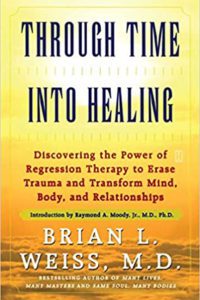
Through Time Into Healing: Discovering the Power of Regression Therapy to Erase Trauma and Transform Mind, Body and Relationships
I tell this story a lot because it’s so cool. I had a memory of being saved by a soldier on a black horse. That same day, my son said to me, “Mommy, in a past life, our dog was a black horse.” I was like, “What? Was I there?” He goes, “Yeah, mom. I was a soldier and you were a little girl.” Not that I didn’t love my dog before but I sure love my dog a lot because he helped save my life.
Your pug.
My little black pug. For me, that was some validation.
That is beautiful. I love that. I hope that my Griffin will be with me in many lifetimes because he’s honestly been the one that’s been there for me through thick and thin. Everybody has their partner in their lives and I’m the single woman in the family. He’s the one that’s been there for me through.
I’m sure he has been before and he will be again.
“No matter how good of a psychic you are, you can only read in your configuration.” Can you explain that, Kristina?
I joke with some of my friend-client. They’re like, “How is it that you’re able to read me? Why is it that you bring up the things that you bring up?” I was like, “I only bring up the things that my body understands.” If I were to suddenly come across a person who had a completely different configuration, you could say frequency, life experiences or whatever. If they’re resonating with some wounds that I’ve never experienced, which isn’t true because I have all of them and we all do, the idea is that as a psychic, the clients who come to you who resonate are usually similar to you.
Similar to the thing we’re talking about with family, giving you your lessons. You are able to help facilitate as a psychic the experience that other people have because you share, Robbie calls them codes. Other people can call them experiences. You could call them little packets of wisdom or whatever. You share something and you’re able to give them insights into aspects of themselves. You were put together for them. Even a psychic-client relationship is like that.
An example would be if you’ve ever had an eating disorder, you can spot someone with an eating disorder in a restaurant a mile away but other people can’t. Let’s say you’ve been around a sexual predator or you’ve been a survivor of sexual predation, you can spot them a mile away and people who haven’t can’t. What a shaman does in their initiation and their training is they go through the equivalent on an energy level of every “demon” that you could imagine. That way, they can recognize it and vibrate to it with anyone else.
They can hold space for what they understand and you can’t hold space for what you don’t understand. This happens a lot. Someone having a privileged life can’t necessarily understand what it’s like to be the underdog in society or a marginalized group because they don’t have the framework with which to even put themselves in that world. It’s like that idea. You only know what you know.
I remember once, I had a session and I was feeling particularly victim-y that day. I was like, “Why did all this stuff happen to me? Why is it like that?” We were doing an exercise where I was my small self. I was like little Kristina in one chair and then there was a chair across from me then I would get up and I would become big Kristina, my big self, my higher self. My little self was like, “Why did I have to experience all this stuff?” I got up and got to the other parents who were like, “If you didn’t experience this, you would not be able to help people in the range of ways that you can.” That was the lesson and after that, I was like, “I totally get it.” Now, every experience I have, the learning I have helps add to my repertoire. Even if it’s a painful experience, it helps me help people more.
I don’t think you need to necessarily put yourself through a lot of things but you can study your own thing. For example, my mom died when I was a child so I feel like I’ve studied the ins and outs of grief. In my job, I’m in healthcare and I’ll work with people who are suddenly disabled. They’ve suddenly had an arm amputated or they’re paralyzed. I’ve never experienced that in this life. I’ve not experienced the loss of a limb or paralyzation but I have visited the many sides of grief. I know what it’s like to lose something. I know what it’s like to have something completely changed and it can never go back. I know what it’s like to grieve.
Because I feel like I’ve studied whatever life is thrown at me from so many different angles, I can then empathize so much better. I don’t say this to them but I’m thinking, “I don’t know what it’s like to lose my knee from below down. I don’t know what it’s like to have to learn to walk with a prosthesis but I do know what it’s like to miss something and know it will never be back and how much that hurts.” I don’t think you necessarily have to go looking for an eating disorder, a sexual predator or something to be able to hold space for those people. Whatever pain story you have, study it and know it in and out. In there is a spider web and it can help you understand everybody.
Whatever pain story you have, study it and know it in and out. In there is a spider web and it can help you understand everybody. Click To TweetIt’s funny what you were saying, Kristina, about the child in one seat, the adult you and the other. It’s like that TikTok trend where it was little you talking to big you. I thought it was a decent trend. Instead of a dancey one or whatever that doesn’t mean anything, I thought it was cool. I like doing the whoa.
Talking to myself at twenty years old before my failed marriage versus me in my mid-30s saying, “How many kids do we have? How’s Ryan? How’s everything going?” I’m like, “No kids. You’re not pregnant and you’re not even married.” The younger me being like, “What do you mean? That’s the love of our life.” It put me in this thankful mentality. That’s awesome. Same thing.
I have one more question for you both. This is a question that I ask everyone that comes on the show. We’ll start with Kristina and we’ll go to Anna. Kristina, if you were walking down the street and you saw twenty-year-old Kristina walking towards you, you gave her a big hug and you pulled away and as you left her embrace, you got to tell her one thing, what would that one thing be? It could be advice, a statement or whatever you want.
If I recognize, it wasn’t like I was a stranger and I was like, “I know this is my older self,” I would give myself the love that I did not have as a twenty-year-old and I didn’t have for most of the time until my late 30s. I’d say, “It’s okay to be wrong and I love you.”
I don’t think I would have been ready to be anyone that I was then. No advice could have changed the course of my life because I was ready to hear and be what I was. Does that make sense? I’ve also thought, “I did my first at 23.” I’d go back to my younger self and tell myself, “Go do it sooner.” Would I have been ready for it sooner? I don’t know. I would just tell myself, “You’re enough.”
This took me a long time to figure out but mine was never let anybody else’s opinion of you define you because I lived constantly in the space where I am defined by the man I’m with. I’m defined by who my parents are. I’m defined by what this person online says about me. I wasn’t ever thinking to myself, “What do I think about myself?” That is what I would say. I don’t know if she would have been ready to accept that because she was such an insecure little thing.
Thank you so much. This has been insightful. I can’t wait. Every time a new episode comes out, I gobble it up. I’m happy. We are blessed to have you both put in the energy and effort to give us all of this information we didn’t know that we needed. That is exactly what it is. It’s all stuff I didn’t know that I needed in my life so I can’t thank you enough for that.
—
That’s all for this episode. I hope that you learn so much from Anna and Kristina. I know that I did. Can you believe what Kristina said about my car accident? I honestly am shocked and I don’t know how to process this information quite yet. I’m still taking it in. It’s a lot. Anna is talking about my back, about the injustice wound and how people with the injustice always have issues with their backs. It’s all resonating for me right now. I hope that it’s resonating with you.
Take the time to read this episode a few times. You can find Anna and Kristina on This Spiritual Fix. They are on Instagram, TikTok and all the audio streaming platforms. I’d highly recommend their podcast to you especially if you are on an empowerment healing journey or spiritual journey or you’re a mama doing it for your husband and your kids. Being a better self, better you, more empowered you. That’s what we’re all about here on the show. We want to make sure that you have all the information right at your fingertips.
If you are watching me on YouTube, go ahead and hit like. It’s a way to support me. That’s free. I would love it if you would subscribe and hit that notification bell so you don’t miss a minute of our content. If you are listening to audio, thank you for being a part of this family. I can’t thank you enough. Your support means the world to me. I can’t wait to see you next time. Until then, I’m sending you all the love in the world. Stay safe and I will see you soon.
Important Links:
- This Spiritual Fix
- This Spiritual Fix – TikTok
- Men Are from Mars, Women Are from Venus
- Mars Venus On a Date
- Super Sweet Soulmate Love: Exploring Deal-Makers and Deal-Breakers – past episode on This Spiritual Fix
- Robbie – past episode on This Spiritual Fix
- Nine Perfect Strangers
- Only Love Is Real
- Through Time Into Healing
- Instagram – This Spiritual Fix
- YouTube – The Luxury Dropout Podcast
About Anna Stromquist and Kristina Wiltsee
 What meditation works for you? What is it like to do tantra? How do you best communicate with a loved one? Kristina Wiltsee & Anna Stromquist are two best friends on a quest to try all things spiritual in order to attain enlightenment — or just stay sane while juggling a lot on their plates. Their internationally recognized podcast hits close to home for many people who are struggling for peace amidst the pain of trauma, emotional wounds, and neurodivergent brains. As we uncover deeper layers of ourselves, they teach, with humor, that there is nothing to fix – just more of us to love.
What meditation works for you? What is it like to do tantra? How do you best communicate with a loved one? Kristina Wiltsee & Anna Stromquist are two best friends on a quest to try all things spiritual in order to attain enlightenment — or just stay sane while juggling a lot on their plates. Their internationally recognized podcast hits close to home for many people who are struggling for peace amidst the pain of trauma, emotional wounds, and neurodivergent brains. As we uncover deeper layers of ourselves, they teach, with humor, that there is nothing to fix – just more of us to love.

